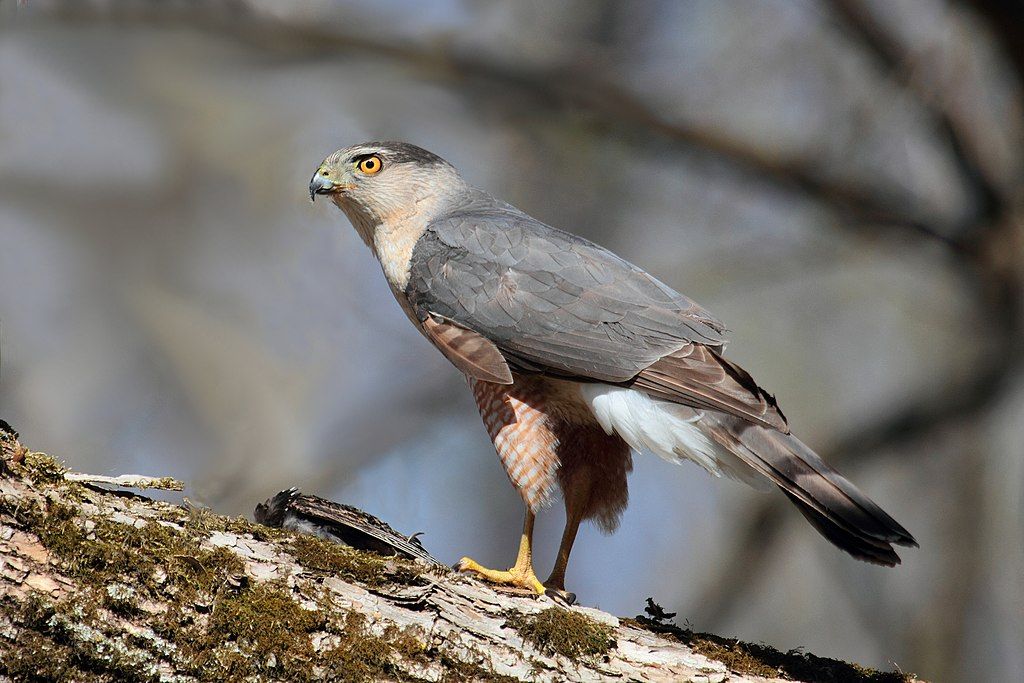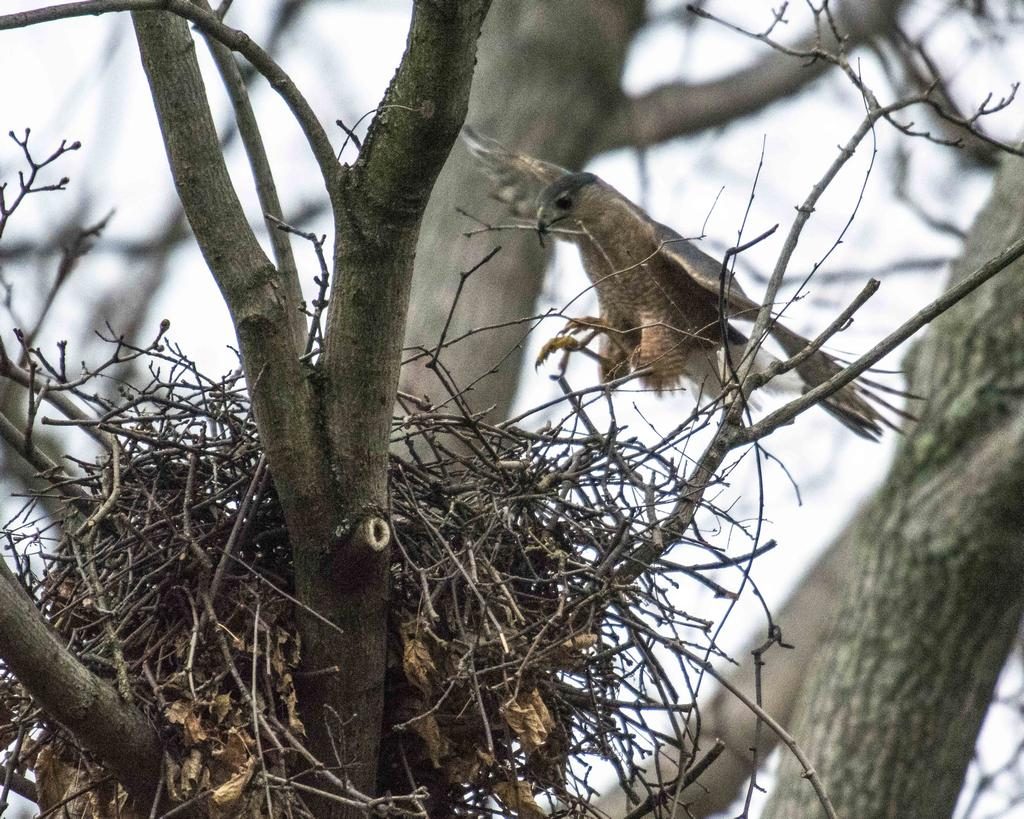
21 April 2022
On 12 April my friend Charity and I saw a Cooper’s hawk building a nest. Yesterday we saw an adult in the nest, incubating. We wondered about the process: When did nest building end? When did incubation begin? Does the male share incubation duties? How long before the eggs hatch?
The answers are fascinating because Cooper’s hawks don’t follow the expected rules. In the quotes from Birds of the World, below, did you know? …
- Cooper’s hawks are a “common backyard breeding bird in cities of all sizes.”
- Male Cooper’s hawks do most of the nest building. The female stops by occasionally to check on his progress and helps a bit, especially at the end.
- Nest-mates have multiple genetic fathers. “Cooper’s Hawks exhibit high rates of extra-pair paternity involving both territorial and especially non-territorial floaters.”
- Only the female has a brood patch. She does most of the incubation. The male takes over for short periods while she eats.
- The female broods the chicks for two weeks, about twice as long as peregrines do.
- Both parents tend the young.

Further details from Birds of the World help answer our questions about the nest:
- Nest building takes 2 weeks.
- Eggs are usually laid in the morning at 2 day intervals (occasionally 3 days) for a total of 3-5 eggs.
- Incubation begins after the 3rd egg and lasts 34 days. The first 3 eggs hatch on the same day; the 4th and 5th eggs laid usually hatch 1 day later, occasionally up to 3 days later.
- The young leave the nest at about 30 days (males) to 34 days (females), although able to clamber short distance in nest tree 4–5 days earlier.
The earliest schedule would be: Nest completion on 12 April, female laid 3 eggs 12-16 April, incubation began 16 April, hatching on 20 May, young leave the nest 19-23 June.
The latest schedule would be: Female began incubation 19 April, hatching on 23 May, young leave the nest 22-26 June.
I plan to stop by occasionally to see what’s up. The excitement will start in late May.
Meanwhile, see photos of a Cooper’s hawk family nesting in a backyard in this vintage article from 2017.
(top photo from Wikimedia Commons, nest-building photo by BrockmeyerPhoto)
Although watching Coopershawks build nest and care for their young has been interesting, I have been hit in the head 3 times during fledging. Certainly frightening and restricted my ability to work in my garden. I had to take away my bird feeders to prevent Cooper Hawks from eating the finch, cardinals and doves. I don’t want the hawks to return next year. What can I do?
Barbara, Cooper’s hawks choose nest sites close to dense prey populations where lots of prey is available during the fledgling dependency period. Since they eat birds, they are looking for a place where songbirds congregate. They start looking for likely nest sites in late Feb and make their decision in March. If you don’t feed the birds for about 6 weeks — mid-Feb 2024 throughout March 2024 — there is less likelihood Cooper’s hawks will choose your area. It’s not guaranteed that this will work but it will prevent the birds in your area from being eaten.
p.s. A bird bath with cover around it (shrubs, etc) also attracts birds but not in the feeder-density that attracts hawks.
There’s been a Cooper’s Hawk nest in neighbor’s tree since late April/early May. Fledglings around all day until dusk, could hear family squawking throughout. Today, silence. No sign or sounds at all. Neighbor moved in two years ago and has cut every single shrub, tree, sapling, etc., and I’m worried he somehow took the nest down (nest was toward the top of a pine, approx 50 feet up). Wondering if the whole crew just left? Or did nutty neighbor destroy it somehow?
-Karen
Typically all the young are able to fly well and have leaned to hunt by late July / early Augus. They are independent so they leave the area.